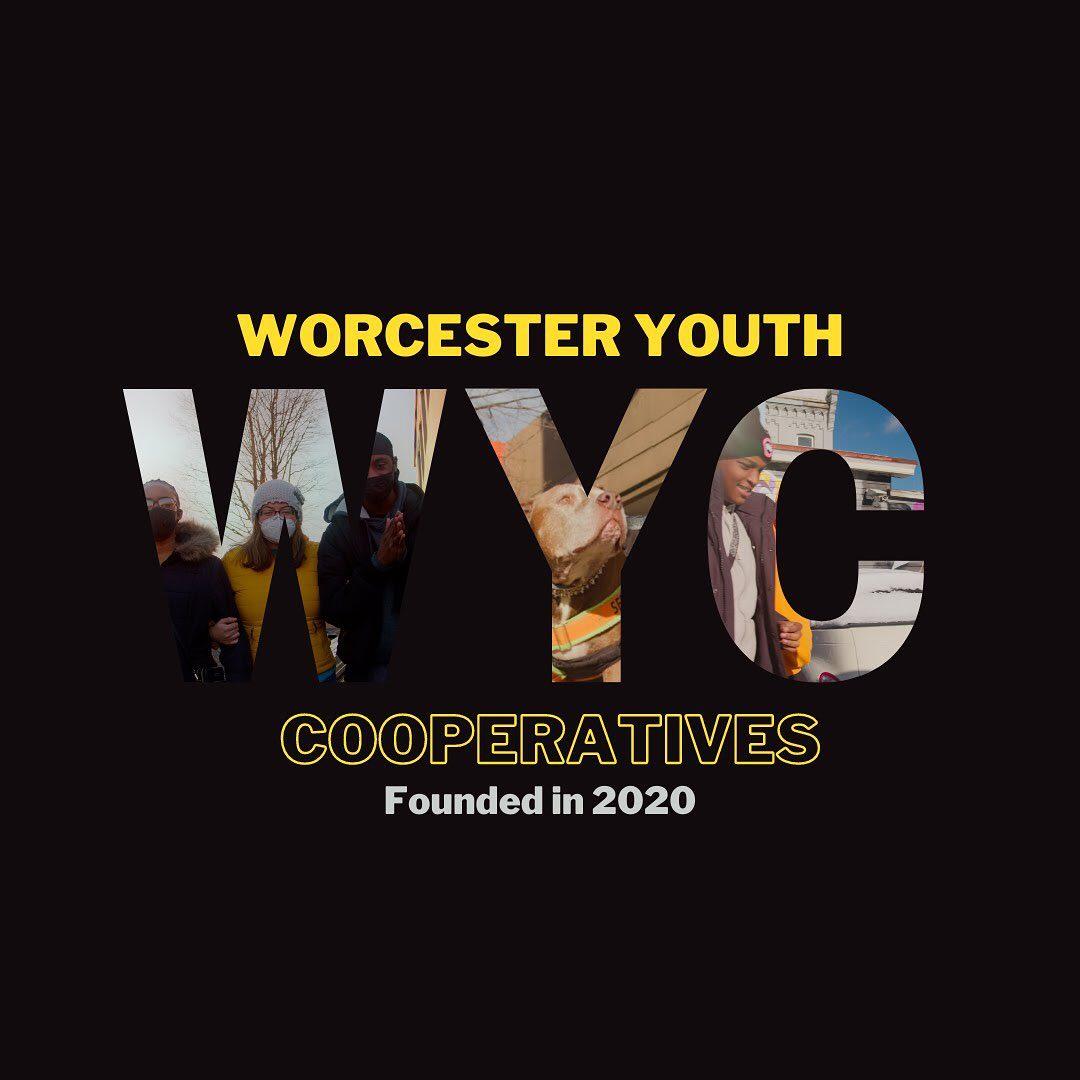
How Worcester Youth are Creating a Solidarity Economy
Recent social movements led by young people have shown Gen Z to be more progressive than any generation before, and more likely to embrace alternatives to the oppressive systems that previous generations have accepted as a given. While this has prompted many to speculate on what this could mean for the future, right now the youth of Worcester, MA are seizing the present to create change in their community. In a city with a poverty rate of more than 20%, exacerbated by the impact of Covid-19 on the local economy, a group of determined young people have formed a network of cooperatives to earn money while helping to meet the needs of their most vulnerable neighbors throughout the community.
Worcester Youth Cooperatives was started in October 2020 by six high school students to build “cooperative solutions” to the social issues they care about. They found each other while involved in an educational program where they learned the basics of cooperative economics and gained practical experience in growing hydroponic vegetables. “At first, I didn’t know anything about it,” says Genesis, 18. Like Genesis, most of the founders’ journeys in cooperative economics began as a summer job. Jahir, 17, got involved with the program through Genesis, who he says told him what a good opportunity it was to help their community. Laci, who is now 17, had been working for the program since she was 14 years old, and her brother Livingston also helped found the co-op. “It was kind of a group thing,” he says. “I wanted to stay with people I trust, get along with.”
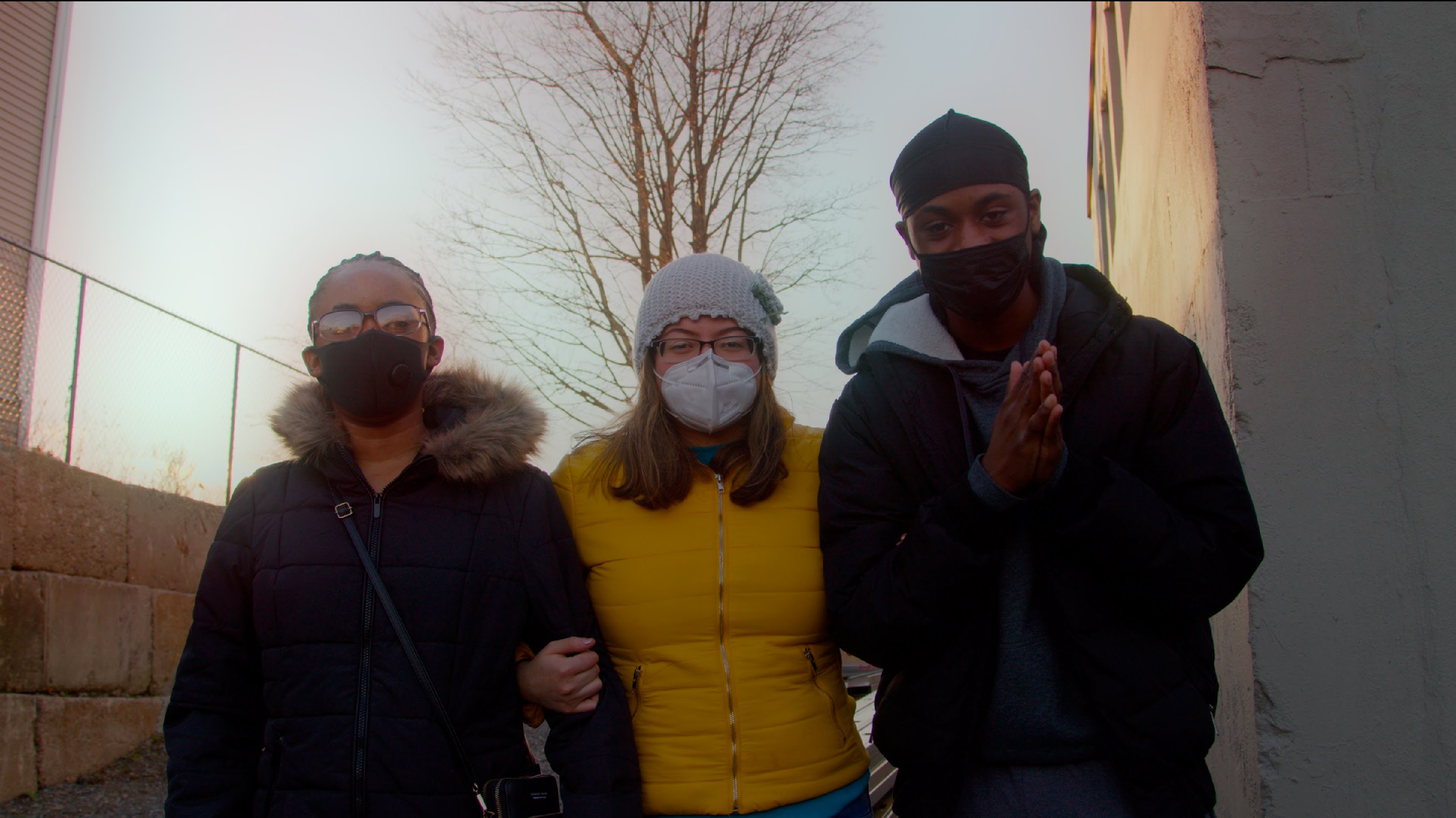
The objective of the educational program was for the youth to start a worker cooperative with hydroponic farming, but along the way, the youth themselves decided to shift their mission to something that was even more transformative. The space where the program was located was at the epicenter of the Central Massachusetts city’s opioid epidemic and homelessness crisis, in the neighborhood known as Main South. Lack of affordable housing has led to a concentrated homeless population in this area, as redevelopment efforts drive up rents and the recent expiration of the state’s eviction moratorium allows landlords to force people out of their homes in the middle of a pandemic. Worcester has also seen a surge in opioid abuse over the last decade, with the second highest number of fatal overdoses in the state. When the pandemic hit, the youth started seeing more homeless people in their neighborhood than usual as homeless shelters and detox centers throughout the city shut down. Having been deeply affected by their exposure to the devastating effects of these crises, the youth decided together that it would be best to shift toward providing direct services to the homeless community and people dealing with addiction.
Laci says the idea first came up when first started working with their hydroponics system. “We thought, how can we actually use this for the community?” she says. Their new vision was to start a hydroponics co-op, growing fruits and vegetables that people would buy directly through a CSA, and to also distribute free produce to people in need. When they pitched these ideas to the adults at the organization and didn’t receive any support, they decided collectively that the best way to work toward this mission in a truly youth-led effort would be to form their own autonomous collective. “We would be able to have more opportunities to do what we wanted to, and what would really help the community, if we left,” says Laci.
The group of six youth partnered with another group of young people called 508 BikeLife to form WYCs. The collective now consists of 15-20 youth members who run two worker cooperatives, Hydroponic Healers Co-op and BikeLife Delivery Co-op, and two direct service programs called S.O.S. Worcester and Worcester Free Fridge. Another major project is the Youth Co-op Solutions Academy, a 24-week curriculum for young people to learn to develop and launch their own cooperatives, which will begin its pilot run with the current members in February.
The curriculum was designed collaboratively with Addison Turner, who had worked with the youth in the educational program, and with 508 BikeLife before that. When the group decided to form their own organization, they asked Addison to be part of the new initiative as an adult ally. “My job was just to provide support, guidance, and resources for them to pursue their mission,” he says. Addison now works with WYCs to organize the network of adults and elders who support the youth in that mission. He recalls observing about a year ago that although they enjoyed the hydroponics, the youth were missing something to really unite and move them forward with passion, and expresses that it’s been emotional “to have them really grasp this opportunity, despite everything that has stood against their self-determination.”
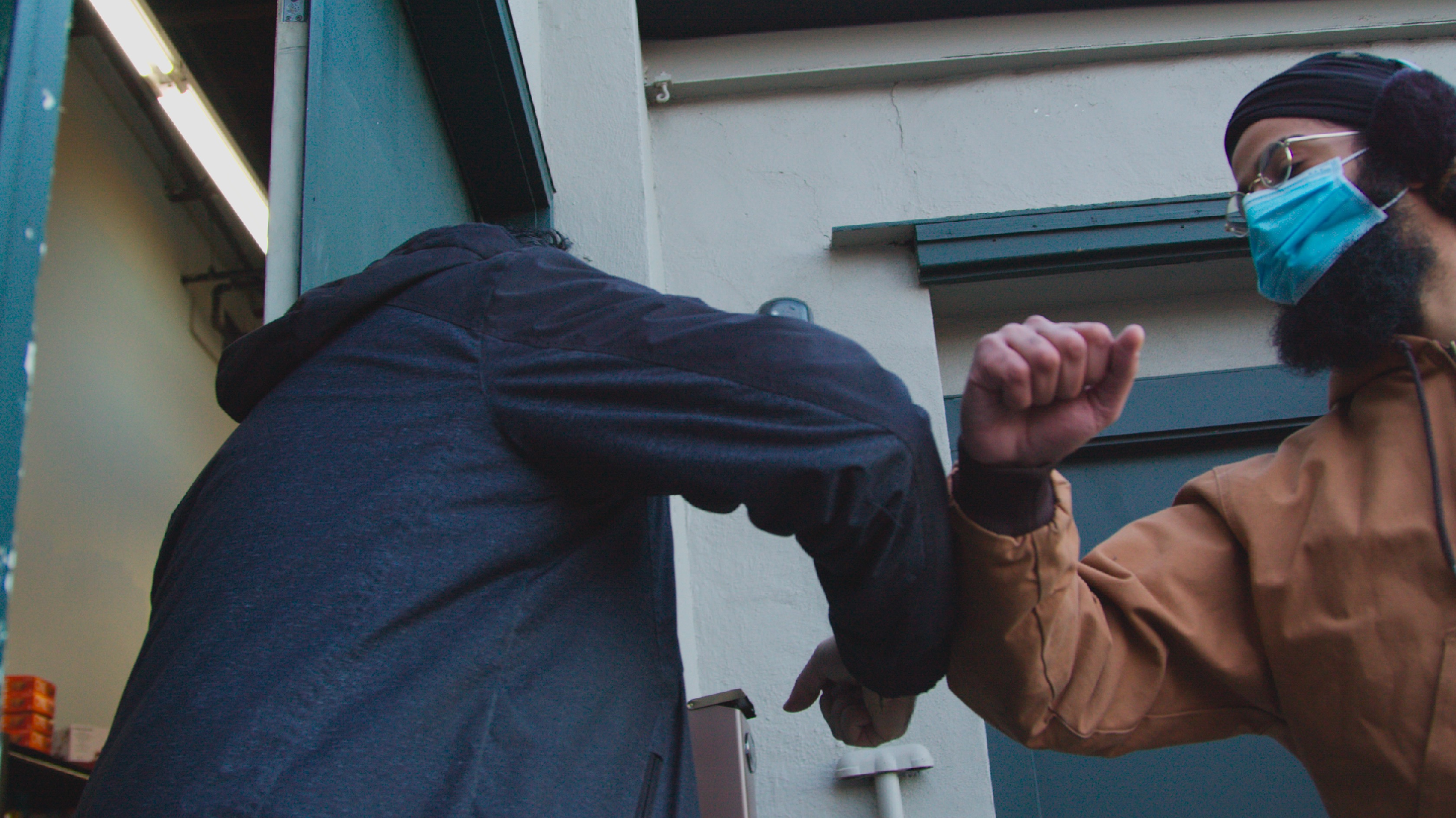
Hydroponic Healers Co-op was started by the six founders after they moved their hydroponics system to a new location. The farm currently grows greens and herbs, and has the capacity to grow about 100 heads of lettuce per week. This past summer they planned to launch the CSA, but starting their own organization has delayed those plans. For now, they continue to operate the hydroponics and give the food away for free to people who are hungry, with hope of making it into a lucrative enterprise once they’ve gone through the Co-op Academy. “The plan is basically to grow affordable greens, and non-GMO foods,” says Genesis.
“When we first started talking about it, I didn’t know what a CSA was,” says Laci. Their first step, she explains, was researching other CSAs, which helped them decide on a price range and the other logistics of how their business would operate. She says she sees this as an opportunity for low-income families to have access to healthy food at an affordable price. “In this area, there are a lot of fast food places, but not a lot of places where we can get cheap, healthy fruits or vegetables, so I like to think of it as an opportunity to offer vegetables in a place where there are not a lot of cheap ones.”
The second worker co-op, BikeLife Delivery Co-op, is a delivery business started by 508 BikeLife, a group of young people committed to using the bicycle to provide access to the city as a tactic against forces such as gentrification. Using bikes, mopeds and other vehicles, the co-op delivers food and other supplies to those without access to vehicles. This co-op works in tandem with the third cooperative, which is the first of WYCs’ Serve the People (STP) programs. S.O.S. Worcester, which stands for Survival Outreach and Solidarity, is led by youth who are homeless or have experience with homelessness or drug use. Through this co-op, the youth do outreach to their homeless neighbors and provide harm reduction measures for people addicted to drugs, distributing food, winter gear, and hygiene kits.
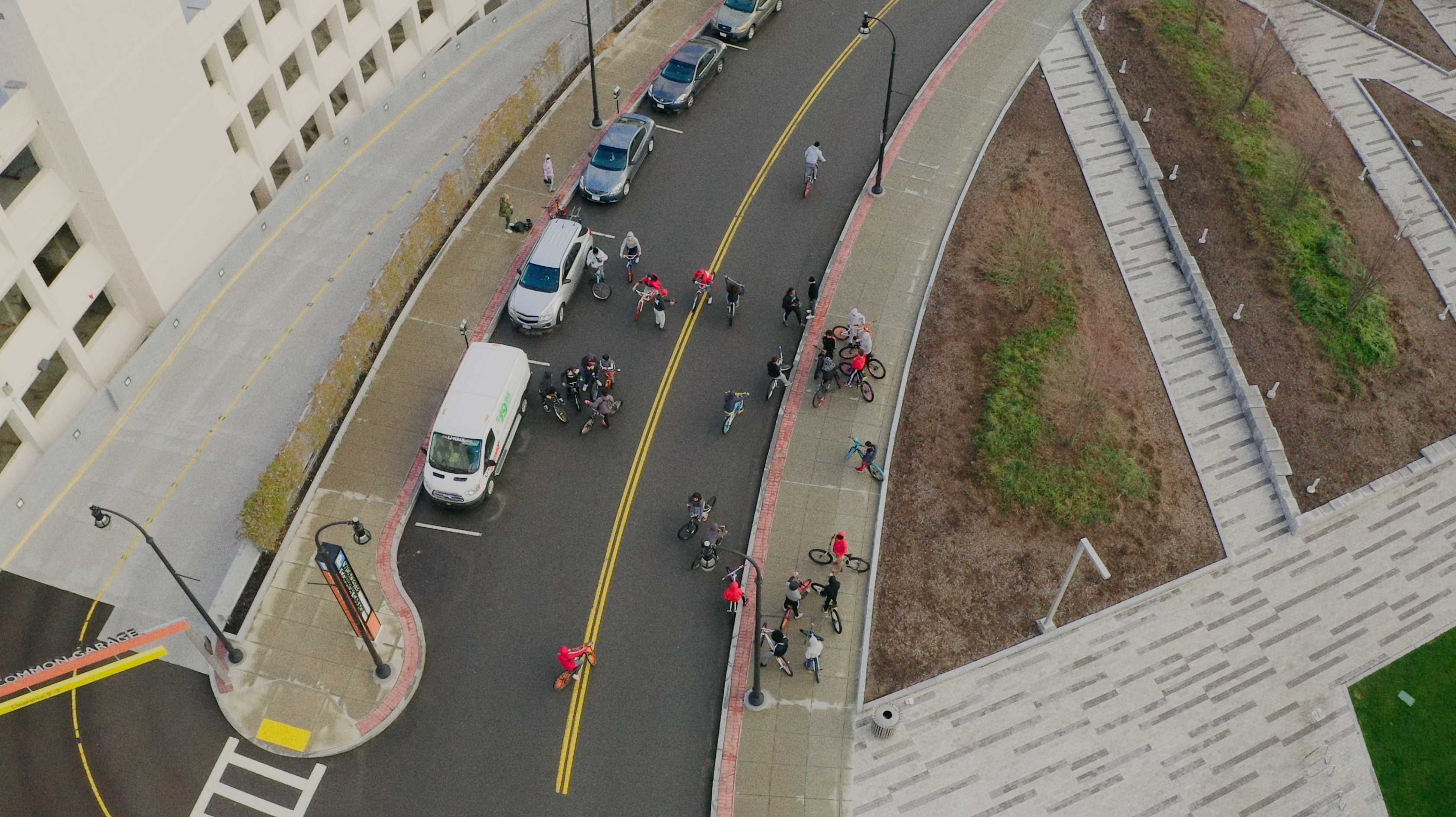
“I love doing homeless outreach,” says Genesis. “It brings joy to my heart.”
“I believe that it’s been a lot more impactful, because before we were selling organic goods, which is a good thing to do, but this is a lot more hands-on, and I can actually see the impact that we’re making,” says Laci.
“For me, it’s made me more open-minded, and a lot more considerate of the homeless and people in need, and how important it is for our co-op to be able to help,” says Livingston.
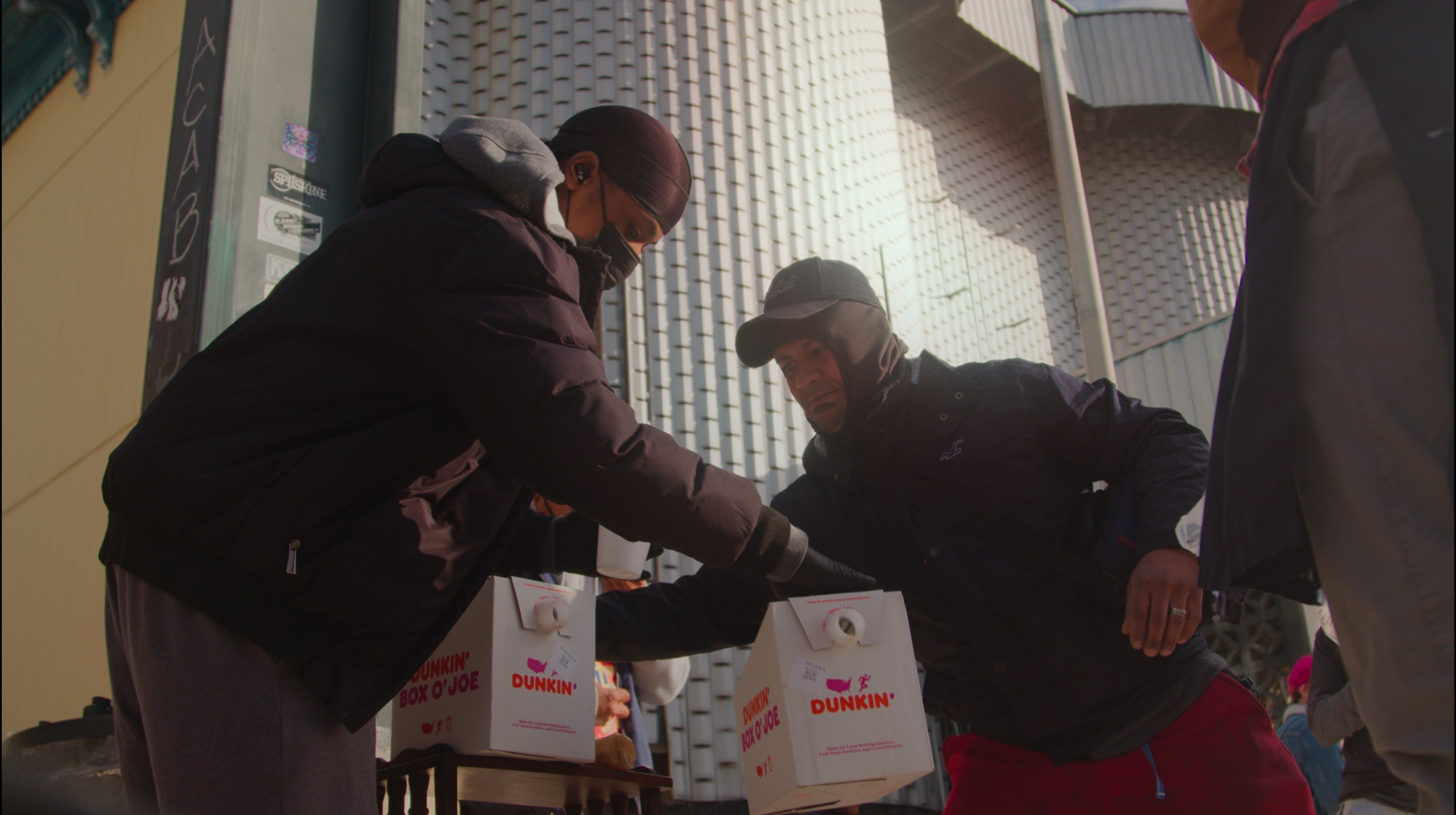
The delivery co-op partners with the hydroponics co-op to deliver some of their produce, along with food from food pantries, to people identified by the community as people in need. While the youth have raised money through channels like social media to purchase supplies, and have a relationship with a resale company that provides food to distribute, their long-term vision is to have revenue from co-ops like the hydroponics and delivery businesses sustain their STP programs. Addison believes earning revenue from business enterprises to fund direct service programs is crucial to creating social justice. “I think there is a dangerous tendency to separate systems-change work from direct service work,” he says. “There is a dialectical unity between building systems like worker co-ops and serving people’s direct needs through outreach. WYCs’ model recognizes this. It is a correct approach to learn from practice the importance and interdependence of acting on peoples’ need for survival as well as revolution. Prioritizing one or the other in a rigid, unchanging way can only lead to abandoning the interests of the people and failing to meet them where they are at as complete human beings. We have to do both in order to build power. In other words, you’re not serving the people fully if you aren’t working on our collective interest to revolutionize the system, and you’re not fully changing systems if you’re not meeting people’s direct needs.” Raquel Castro-Corazzini, another key member of the adult support network, thinks it will be very useful for the youth to learn how a nonprofit works, and how to sustain something that doesn’t have earnings coming in but needs output. “Many people have used many models to create solutions for that” she says, “and I’m interested in seeing them navigate through which ones make sense for them and their values.”
With an age range of 16-22 among current members, WYCs’ Board of Directors is structured to be 100% youth (ages 14-24) and young adult (ages 25-29) members. Adults and elders can support the cooperatives by applying for the advisory board, of which there are five subcommittees focused on different administrative areas such as fundraising and development. The adults may not vote on decisions made about the co-ops as the youth do, however, and their role is mainly to protect the ideal of youth leadership while ensuring they have the support they need to fulfill their mission. The youth say they’ve found that the adults on the advisory board are willing to listen to their ideas and want to support them in achieving their goals. “Because we’re young, we don’t understand everything, but they’re there to support us and help us learn stuff that we don’t know," says Laci.
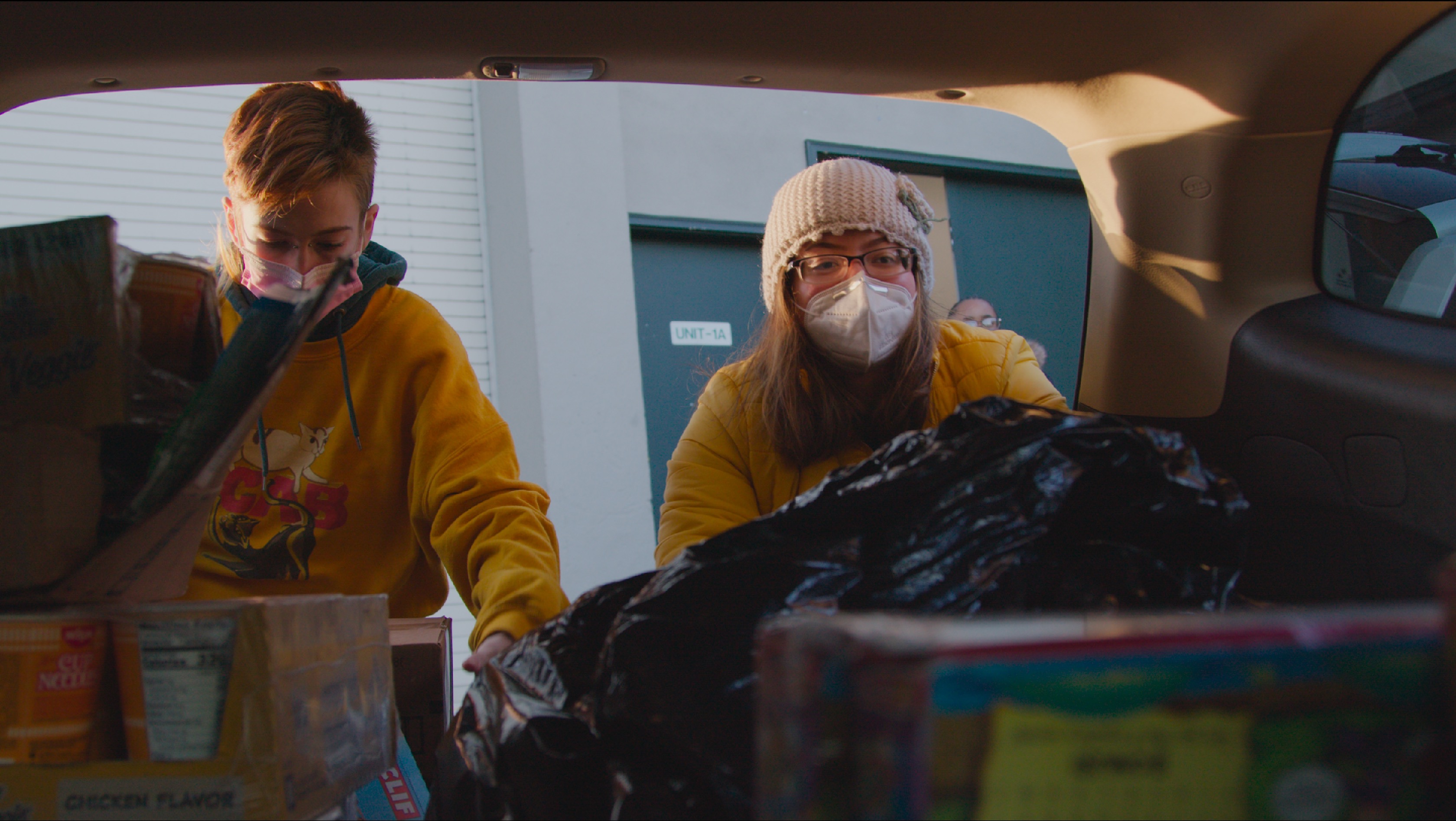
Raquel is the Director of the Division of Youth Opportunities, a division of the City of Worcester’s Dept. of Health & Human Services, which formed a partnership with WYCs about two months ago when the youth and Addison reached out to Raquel. The Division is focused on working with young people, defined as between the ages of birth and 24. Through advocacy, policy and programming, Raquel says their ultimate goal is to create justice for youth, in whatever way that young person needs. “That’s what we’re about—meeting young people where they’re at.” Their work includes a lot of youth employment programs, and Raquel thought this was an interesting new perspective on that, for youth to be business owners. The Division has provided resources, such as putting Addison on their payroll, supporting him in navigating the challenges of youth development, and has committed to giving the co-op whatever materials they need. While the co-op mostly meets virtually right now due to the pandemic, the Division will also provide programming space once they are able to meet in person again. Raquel says they hope to support recruitment with the young people the Division works with, most of whom are urban young people of color, and is excited about exposing the demographic they serve to the opportunity of being part of a cooperative and what that business model looks like. She believes in supporting the development of youth cooperative economics because the things young people learn from it can be incorporated into every aspect of their lives. “Even if they don’t end up starting or joining a cooperative, the fact that they understand how these models work and can incorporate those kind of learnings into other things they do in their lives, and even the idea of cooperation, is so valuable.”
The Division has also helped with curriculum development, training and provided space for the youth to run the Youth Cooperative Solutions Academy, which will begin its pilot run in February. With input from the youth and Raquel, Addison adapted the curriculum from a manual for starting cooperatives called “How to Create a Solidarity Enterprise,” by Luis Razeto Migliaro of Argentina, making it accessible to young people. The Co-op Academy is designed to be 24 weeks long, with the curriculum divided into eight units, each of which focuses on one of the fundamental themes of organizing a co-op and consists of three sessions. These units are grouped into seven “phases,” named for the phases of plant growth. For example, the first of these is the Seeds phase, which focuses on forming a solidarity group. The Flowers phase is graduation, where different co-ops will give their pitches to the community, including friends and family, community leaders, and potential investors and supporters.
The Co-op Academy season is part of a larger annual cycle. WYCs has a partnership that helps to fund the youth’s wages in the summertime, so they can commit more fully to building their co-op. During the summer phase, since they don’t have the structure of the Academy, they are paired with mentors who help to guide them. In fall, there is the Harvest Festival, which involves evaluating successes throughout summer, and coincides with recruitment for next Academy. The winter phase involves staff training and assessing the strategic plan for Academy, after which the Academy season begins again.

The current members will participate in the pilot Academy to prepare them to facilitate it next year. Having gone through a similar program before, the youth have had a lot of input in making this curriculum accessible and exciting for their peers. Jahir has focused on making the material better in addition to his work within the co-ops. “I feel like my curriculum work definitely informed me of how important my job is,” he says. “When I first got the job, I didn’t know how much of an impact we would have on the community, how important our role is.” What the current members of WYCs are doing has attracted a lot of attention from other youth, who have contacted them with their own ideas for co-ops. For example, they have recently heard from a group of youth who want to start a composting co-op. While the pilot was originally going to be just the existing members, they have decided to allow some of these youth to participate in the pilot academy as a result of this demonstration of interest. “Finding people isn’t actually hard, because everybody wants to make a difference in our community,” says Genesis. Addison says the vision for next year’s cycle is to have small groups of youth who already have an idea go through the academy. The idea doesn’t have to be fully fleshed out, he explains, because in the second unit they consider whether they want to continue with this idea or with a different one. Once participants have graduated, they have the option to become a member of WYCs and to facilitate the Academy, as well as other opportunities for leadership development.
Addison says he came to see cooperatives as a solution to social issues from learning about examples such as the Black Panther Party, which exemplified the strategy of earning revenue through business entities such as their restaurant and entertainment production company, and using this to fund their programs that directly served the people, such as their Free Breakfast for Children Program and free medical clinics. “Without doing both those things well, they wouldn’t have had the power they had,” he says. In observing how conversations about social justice often centered on the redistribution of wealth, he came to believe the problem was not how wealth is distributed, but how it is produced, which is through “fundamentally oppressive relationships.”
“Worker coops are proof of the concept that workers can own and manage their own business without the need for ‘the boss,’” he says. “At the very least, cooperatives are an expression of the truth that we can build a world without the capitalist class, without white supremacy, without patriarchy. At their best, they could be part of a broader social movement, integrated with the people, that changes through practice the way we operate society.”
“If starting worker co-ops is your vision for social change,” he says, “you have to meet people where they’re at.”
The youth believe cooperative solutions allow youth to make a difference with any social issues they care about, and feel this work has helped prepare them to do so in the future. “In cooperatives,” says Laci, “it opens up the chance for everyone to have different opinions and ideas, regarding one goal we have. There’s all sorts of points of view for everyone in a co-op, and their words have equal value. Also, it can be about anything they want.” Laci and Genesis, who have both recently been accepted into nursing programs, believe co-ops can help give low-income communities better access to healthcare. This past fall, Genesis, Laci and Livingston took street medic training in which they learned skills such as administering Narcan. “It gives us the chance to help any homeless person we see having any medical problems while we’re doing outreach,” says Genesis, who won a “Light the Way” scholarship from Assumption College in large part due to her co-founding of WYCs.
Livingston says when he and Laci get older, they want to go to Jamaica and help build schools and other resources for low-income families. “This is helping me understand how to plan things and how to communicate better,” he says. “It makes reaching my goal easier.” Jahir, who would like to follow the example of several members of his family and become a police officer or SWAT team member, says the co-op has inspired “to help the community a lot more and make a change.” He believes co-ops can help with the issue of gang violence among youth, and would like to create cooperative solutions to help kids learn the dangers of gang initiation and provide them with activities to distract them from that path.
Addison says he’s found that while some of the language of cooperative economics is new to the youth, the concepts themselves aren’t. “They get it more than anybody else, because they’re feeling the impacts of the system most viscerally. That’s part of building power from the people rather than from the liberal establishment—acknowledging that it’s only the life experiences of the oppressed that bring radical truth and honesty to the table.”
Raquel hopes other cities come to see the benefits of fostering these kind of youth-led cooperative efforts. “Young people are the ones that we’re passing the keys to in the future, and the more investment we make in them, the more investment they’ll make in us. One of the things we want is for them to have the opportunity to think creatively about our future, and if we don’t allow alternatives in the way they think about their careers and education, and where they’re education goes, we’re not gonna create free thinkers.”
Laci says adults can help by being open to what young people have to say, and should encourage them to make a change in the present, rather than just the future. “They can start in the moment, because there’s always ability to help in any community,” she says.
“We young people want to make a change, but we do need a little bit of support to actually make things happen,” says Genesis.
The youth adamantly agree that they would encourage other people their age to participate in this kind of work. “I would tell them to definitely join a co-op to accelerate their plans, as co-ops are very reasonable, and they’re always open to hearing new ideas of how they can make a community better,” says Jahir.
“You shouldn’t limit yourself with anything you want to do,” says Genesis. “Yes, we’re youth but that doesn’t mean we don’t have a voice or that our voices shouldn’t be valued. Find a support system to make your goals and dreams happen.”
“Everyone has the power and ability to start something they’re really passionate about,” says Laci. “There are always people out there that are willing to support, you’ve just got to find the right contacts. No matter what age you are, there’s definitely something you can do for your community or any group of people that you want to help.”
Adults and the community can support by donating. We’re raising money to get the BikeLife co-op better equipment for making deliveries, money to purchase supplies for harm reduction outreach, stipends for youth participation in YCSA, and general operating costs. Whether run by youth or not, It’s not easy to get a new nonprofit up and running. These youth have hit the ground running in their new endeavors and it’s time for us to get behind them and support this work that has emerged out of the urgent necessity to organize cooperative solutions to social issues youth care about.
Ways to donate:
Paypal: https://www.paypal.com/donate?hosted_button_id=WA9BKHBK26SL8
Venmo: @BuildWYC
CashApp: $PowerWYC


Comments
Anonymous
March 25, 2021, 10:46 pm
What an uplifting and inspiring story. Anyone who thinks that today’s youth are self absorbed and lacking a social conscience need only look to the work that’s being done by these dedicated young people in Worcester.
Add new comment